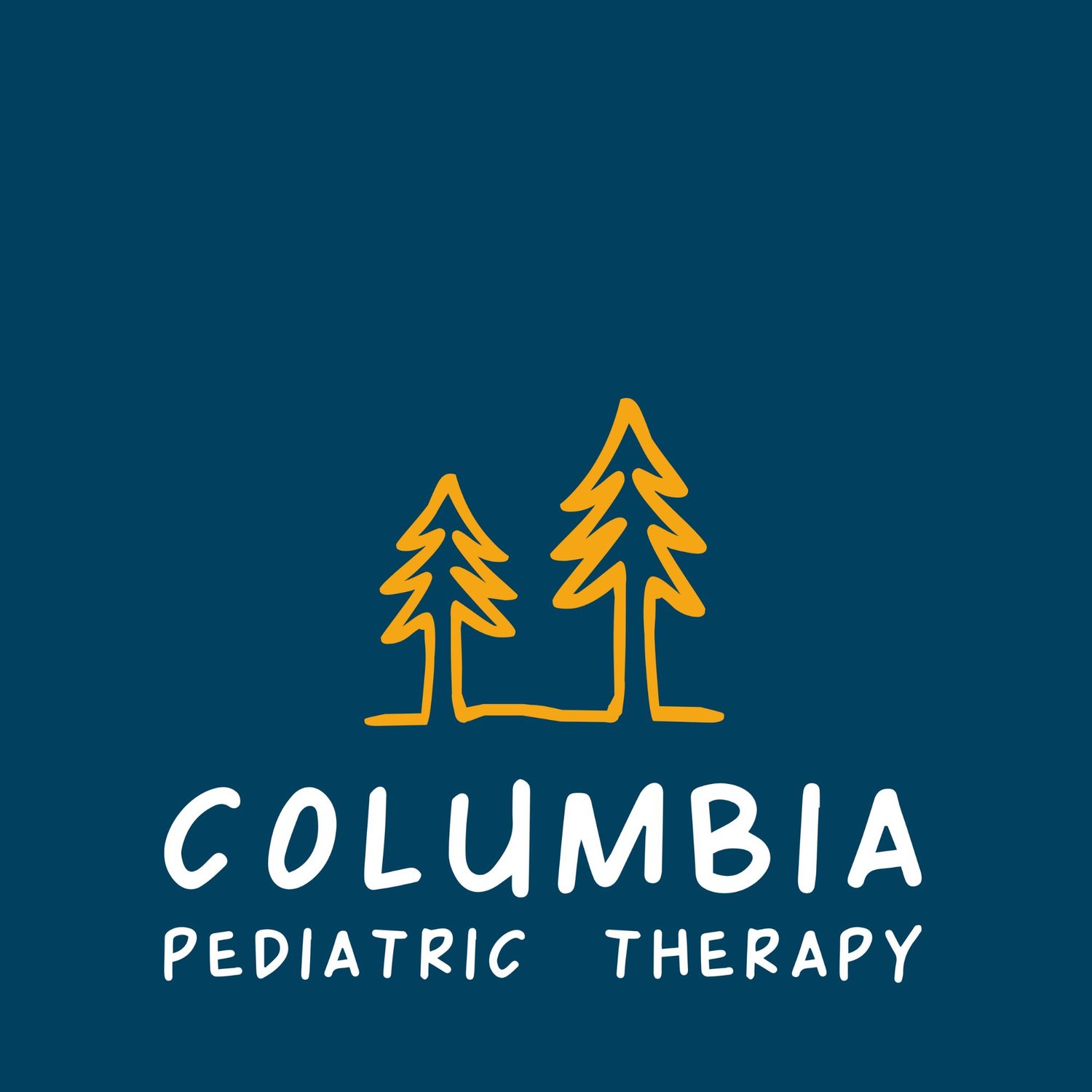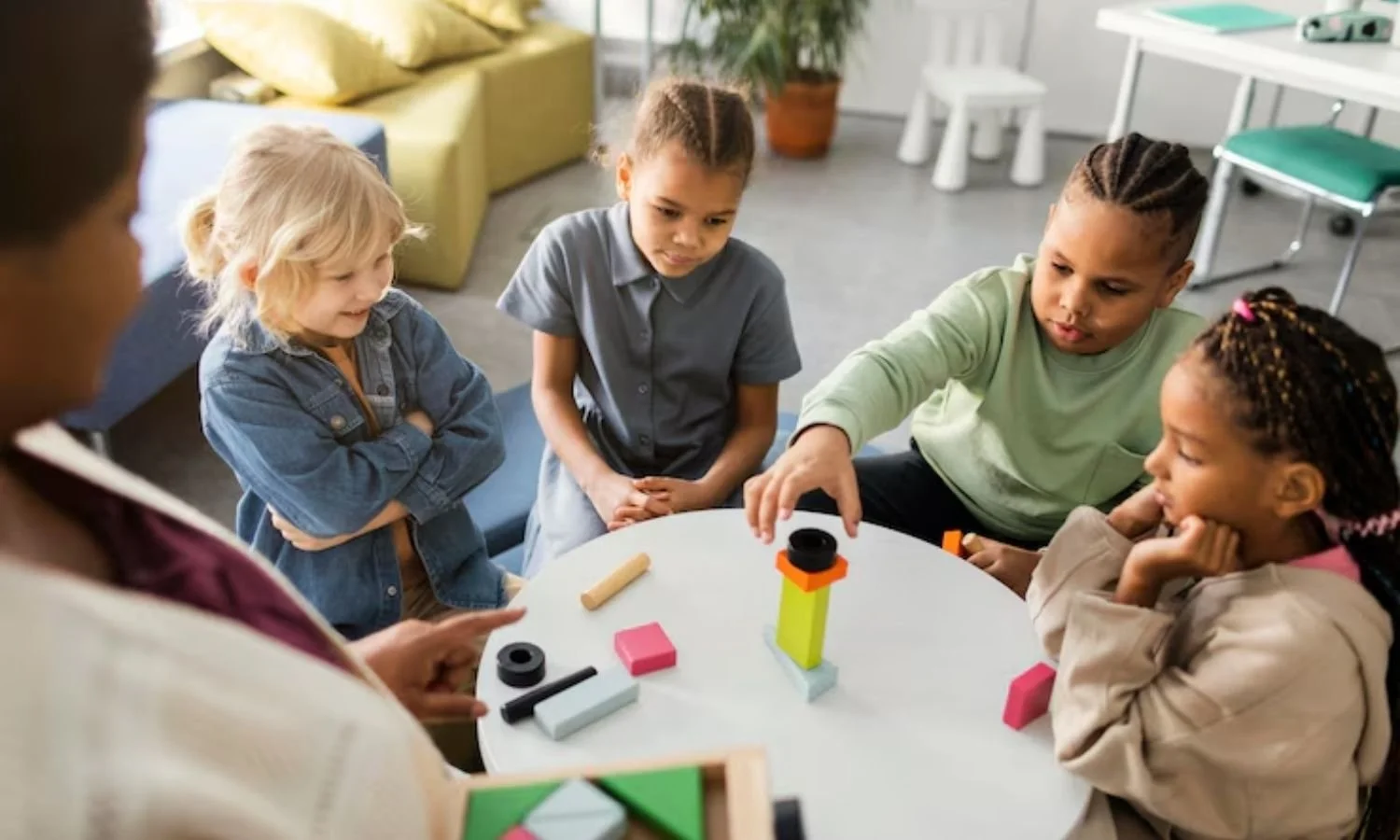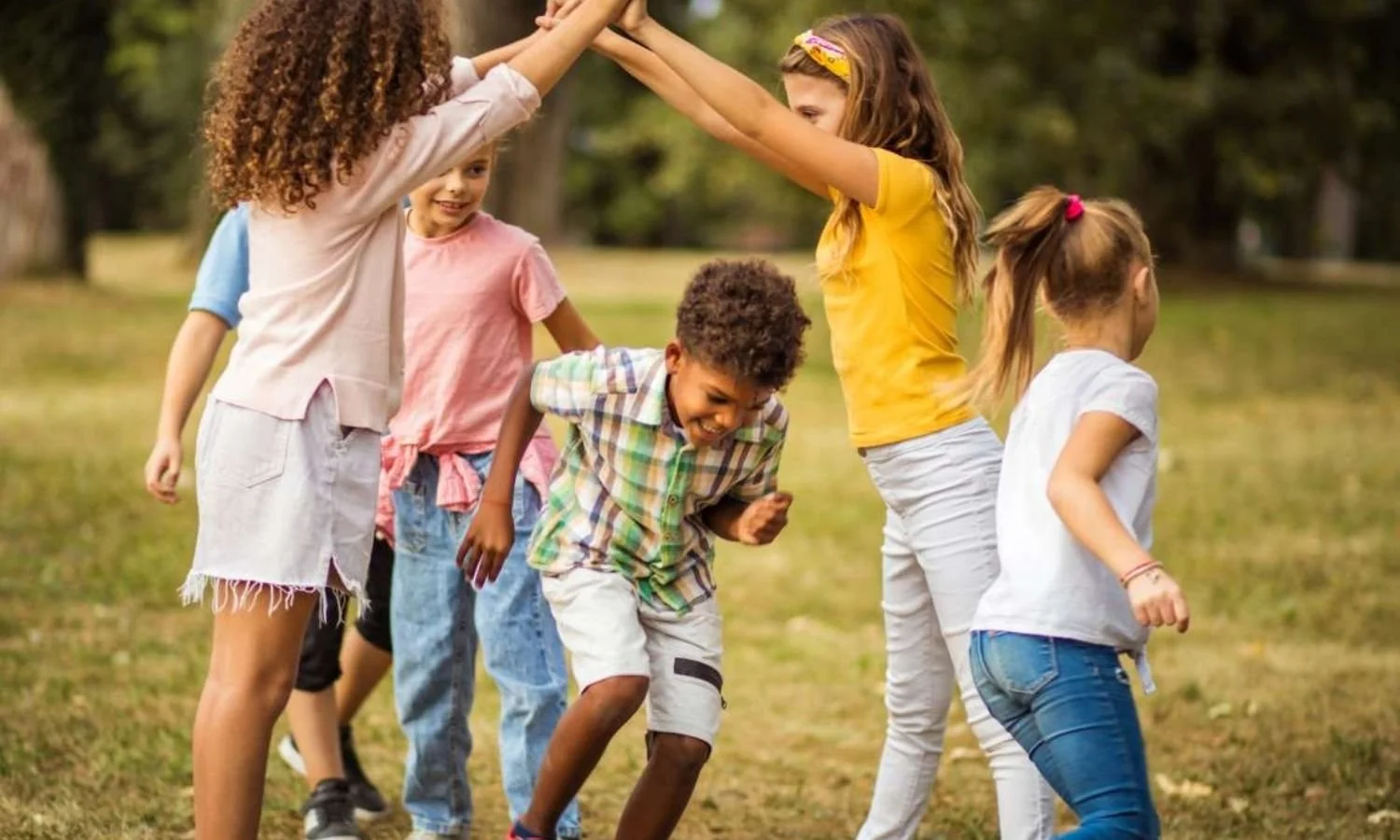How Group Speech Therapy Helps Kids Build Communication and Confidence
By Christine Hinkle, M.A. CCC-SLP
When you think of speech therapy, you might imagine your child sitting one-on-one with a speech-language pathologist and working on their speech and language skills in a quiet office. That format works well for many children—but it’s not the only way!
Group speech therapy brings together two or more children working toward similar goals in a collaborative setting. It’s playful, social, and surprisingly powerful. For some kids, learning alongside peers creates the perfect mix of support and motivation. For others, individual therapy may still be a better fit.
In this post, we’ll walk through the benefits of group speech therapy and a few things to consider when deciding if it’s right for your child.
Benefits of Group Speech Therapy
1. Peer Modeling and Social Interaction
Children naturally learn from each other. In a group setting, they get to see peers using the same communication skills they’re working on—whether that’s a new sound, social skill, or way of asking for help. Oftentimes, one child’s challenge is another child’s strength—meaning there can be so much to learn from one another!
Why it Matters:
● Encourages social connection and communication
● Allows kids to demonstrate their strengths as well as learn from others
2. Functional Communication in Real-Time
Group therapy provides opportunities for children to use speech and language in meaningful, everyday ways—like asking a friend to pass a toy or joining in a game.
Why it matters:
● Creates natural opportunities for using and practicing skills
● Provides more controlled situations kids generalize skills they learned in 1:1 speech therapy
3. Fun and Engaging Activities
Speech-language pathologists try to keep things fun and engaging in 1:1 therapy—however, group therapy allows us to try different games and other fun collaborative tasks that would otherwise not be possible in a 1:1 setting.
Why it Matters:
● Fun, engaging, and even novel activities can help increase motivation
● Allows more opportunities to practice sharing, turn-taking, and teamwork
4. Builds Confidence Through Connection
For many children, being part of a group can help reduce the pressure to “perform.” When they see others working on similar skills, it normalizes the experience and fosters a sense of belonging.
Why it Matters:
● Reinforces that they’re not alone in their challenges
● Builds empathy and friendship through shared goals
Things to Consider Before Choosing Group Therapy
1. Your Child’s Individual Needs
Not every child learns best in a group. Some may need more focused support, especially if they’re easily distracted or working on highly individualized goals.
Ask yourself (and your speech-language pathologist):
● Does my child benefit from group settings or feel overwhelmed by them?
● Are they working on goals that require close, one-on-one support?
2. Group Composition
An effective group is carefully designed. A skilled speech-language pathologist will group children by age, ability level, and communication needs to make sure the group works well together.
Look for:
● Similar developmental stages and goals
● A therapist who balances structure, flexibility, and individual attention within the group
3. Scheduling and Consistency
Group therapy usually works best with consistent attendance. It may be less flexible than individual sessions given the additional planning, staffing, and scheduling that goes into group treatment.
Why it matters:
● Consistent participation helps kids build trust and routine
● Group dynamics work best when the same children attend regularly
So, Is Group Speech Therapy Right for Your Child?
Group therapy can be a fun, supportive, and highly effective way to build speech and language skills—especially when your child is motivated to learn alongside others. For many kids, it’s a great supplement to individual therapy. For others, it could even be the ideal starting point.
The best way to know? Talk to your child’s speech-language pathologist, or get in touch with a speech-language pathologist near you. They can help you determine what approach best meets your child’s unique needs and goals.
Final Thoughts
Group speech therapy is more than just practicing speech and language skills—it’s about connecting with others, building confidence, and learning to use those skills in everyday moments. When kids laugh, play, and learn together, awesome things can happen.
Feel like group therapy might be right for your child? Check out our website for Summer Social Skills and Feeding Groups at Columbia Pediatric Therapy this summer!





